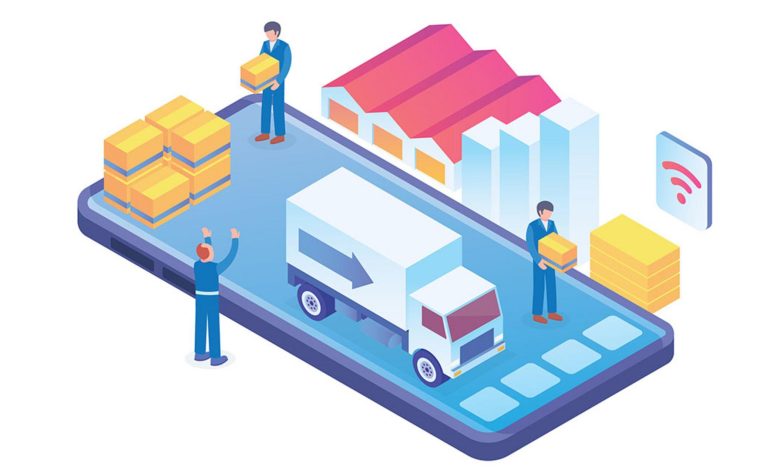
The world of logistics is constantly evolving, and the pace of change is only set to accelerate as we move further into the future. In 2023, we expect to see a range of new technologies and innovations transform how goods and services are transported, stored, and delivered. From the use of AI and machine learning to optimise supply chains to the adoption of blockchain technology for increased transparency and security, there are many exciting developments by top logistics companies in India.
Here, we will explore some of the key trends and innovations to watch in the world of logistics in 2023 and beyond.
Innovations and trends in technology
The logistics industry in India is embracing emerging technologies such as AI, IoT, and blockchain to streamline operations, reduce costs, and enhance customer experience.
Artificial Intelligence and Machine Learning
Artificial intelligence (AI) and machine learning (ML) are two technologies that are already being used in logistics to improve efficiency and reduce costs. AI can be used to analyse extensive data and make predictions about demand, supply, and inventory levels, while ML can learn from this data and optimise supply chain management in real time. Some examples of AI and ML in logistics companies in India include:
- Predictive analytics to forecast demand and optimise inventory levels
- Real-time monitoring of logistic data to identify and resolve bottlenecks
- Robotic process automation to streamline repetitive tasks and reduce errors
In the coming years, we can expect to see more companies adopt AI and ML in logistics to stay competitive and improve their operations.
Blockchain technology
In logistics, blockchain has the potential to improve transparency, traceability, and security throughout the supply chain. Some examples of blockchain technology in logistic include using:
- Smart contracts to automate the tracking of goods and services
- Blockchain to provide a secure and transparent record of supply chain events
- Blockchain to verify the authenticity of products and reduce the risk of fraud
In the future, we can expect to see more companies adopt blockchain technology in logistics to improve the efficiency and security of their operations.
Autonomous delivery and robotics
Autonomous delivery and robotics are two technologies that are already being used in logistics to reduce labour costs, increase efficiency, and improve safety. It can transport goods from one place to another without the need for a driver, while robotics can be used in warehouses and distribution centres to automate tasks such as picking and packing. Some examples of autonomous delivery and robotics in logistics companies in India include:
- Delivery drones to transport goods over short distances
- Autonomous trucks to transport goods over long distances
- Robotic process automation to streamline repetitive tasks in warehouses
As these technologies continue to improve, we can expect to see more companies adopt autonomous delivery and robotics in logistic to improve their efficiency and reduce costs.
Green logistics
Green logistics, also known as sustainable logistic, is a concept that seeks to reduce carbon emissions and improve sustainability in the logistics industry. This can be achieved by reducing the carbon footprint of logistics operations through measures such as using renewable energy sources, optimising transport routes, and reducing packaging waste. Some examples of green logistics in action include:
- Using electric or hybrid vehicles to reduce emissions
- Optimising delivery routes to reduce fuel consumption
- Using reusable or recyclable packaging to reduce waste
As consumers become more environmentally conscious, we can expect to see more companies adopt green logistics in their operations as a way to demonstrate their commitment to sustainability.
Examples of companies using these technologies in India include:
- Delhivery: Uses AI and machine learning to optimise delivery routes and reduce transit times.
- Safexpress: Employs IoT sensors to monitor the condition of goods in transit and ensure their safe delivery.
- Vamaship: Utilises blockchain to provide real-time tracking and transparency in the logistic process.
Apart from these technologies, logistics companies are also exploring solutions such as robotics, autonomous vehicles, and augmented reality to improve efficiency and reduce human error.
Overcoming challenges of Indian logistics
Last-mile delivery
Last-mile delivery is one of the most significant challenges in the logistics industry in India, given the country’s vast geography and complex road infrastructure. Companies are exploring innovative solutions such as delivery drones and electric vehicles to overcome these challenges.
Examples of companies using these solutions in India include:
- Flipkart: Uses electric vehicles for last-mile delivery in major cities to reduce carbon emissions and improve air quality.
- Zomato: Has partnered with Drone Delivery Canada to test the use of delivery drones for food delivery in India.
Additionally, companies are also exploring crowdsourced delivery and hyperlocal logistics to improve the efficiency of last-mile delivery.
Warehousing and fulfilment
The warehousing and fulfilment process is critical in the logistics industry, and companies are exploring various solutions to optimise this process. Here are some examples of companies using these solutions in India include:
- Amazon: Has implemented automated warehouses with robots and conveyor belts to increase efficiency and reduce errors in the fulfilment process.
- Shadowfax: Utilises robots and AI-powered sortation centres to speed up the sorting and delivery process.
Apart from these solutions, companies are also exploring multi-level warehousing and on-demand warehousing to increase storage capacity and flexibility.
Supply Chain Management
Supply chain management is an integral part of the logistic industry, and logistics companies in India are exploring various solutions to optimise this process. Some examples of companies using these solutions in India include:
- DHL: Uses predictive analytics to forecast demand and optimise the supply chain to reduce lead times and inventory costs.
- Mahindra Logistics: Provides real-time tracking and monitoring of the supply chain to ensure on-time delivery and minimise disruptions.
Apart from these solutions, companies are also exploring demand-driven supply chains and blockchain-based supply chain management to improve efficiency and transparency.
Sustainability in logistics
Carbon emission is a common transportation problem, and companies in India are taking initiatives to reduce their carbon footprint.
- Ecom Express: Uses electric vehicles for last-mile delivery to reduce carbon emissions and improve air quality.
- Mahindra logistics: Has implemented green warehouses with solar panels and rainwater harvesting systems to reduce energy consumption and water usage.
Future of logistics in India
The logistics industry in India is evolving rapidly, driven by technological innovations, and changing consumer demands. In the future, we can expect to see more interconnected and digitalised logistics services in India.



